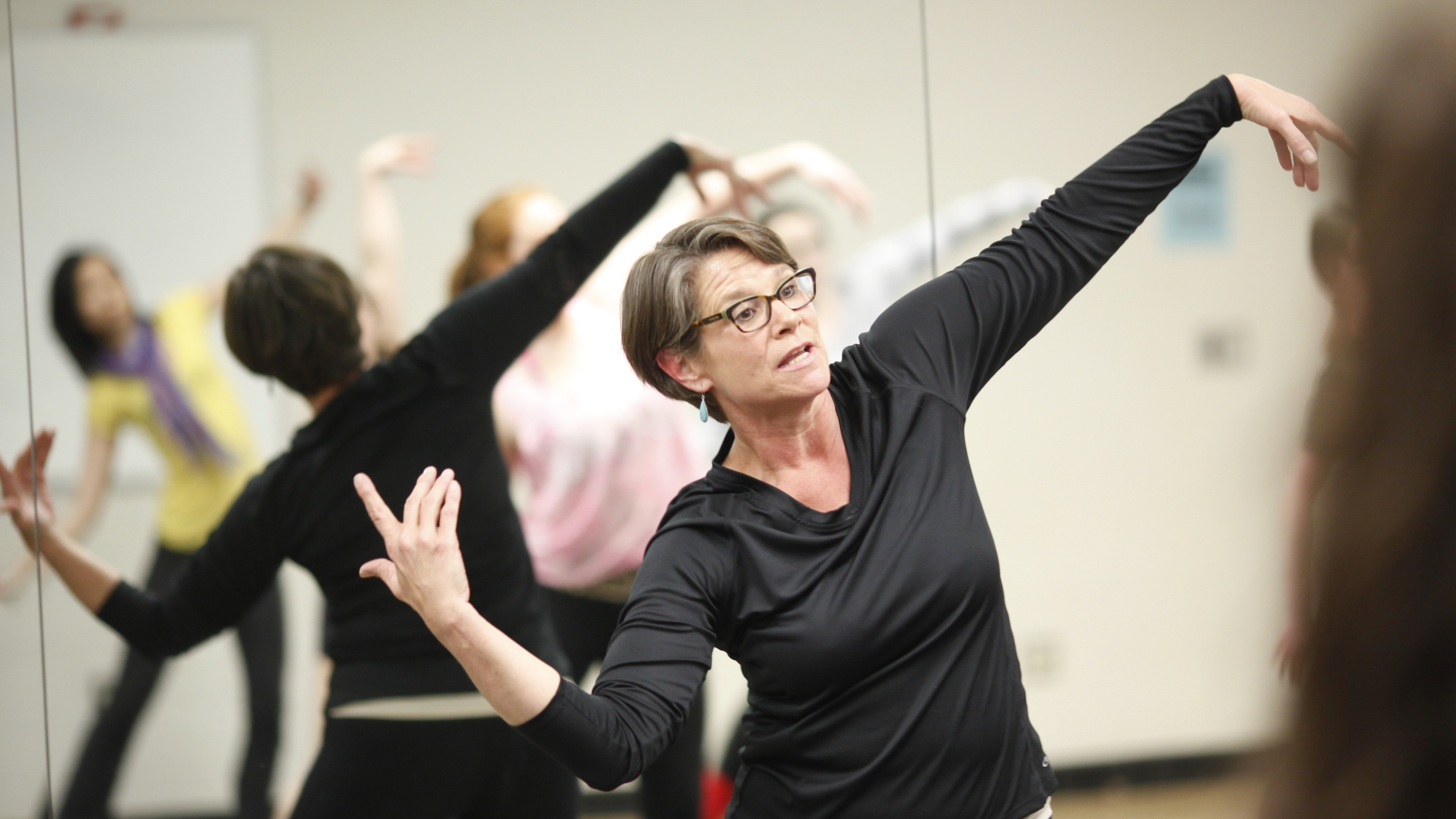Monday, Feb 17, 2020
Move represents key step toward full approval by American Dance Therapy Association
by Keith Fernbach
Rider University’s dance/movement therapy concentration, which is offered within the Master of Arts in Clinical Mental Health Counseling program, has gained candidacy status with the American Dance Therapy Association (ADTA).
Gaining candidacy status means that Rider has demonstrated to the ADTA that it is developing a program that aligns with ADTA’s standards and is providing the administrative support, commitment and resources to sustain the new concentration. This is a key step along the path to gaining full approval, which is expected to take approximately three years. There are currently only six ADTA-approved programs nationwide, and if approved, Rider will be the seventh.
Rider began offering the dance/movement therapy concentration in the fall of 2019 through an innovative partnership between the College of Education and Human Services (CEHS) and Rider's School of Fine and Performing Arts, and has the only CACREP (Council for Accreditation of Counseling and Related Educational Programs)-accredited counseling program in the country to offer this concentration.
Dance/movement therapy is becoming an increasingly popular form of treatment because it provides a way for patients to nonverbally communicate their feelings and emotion, says Associate Professor of Dance at Rider Kim Chandler Vaccaro.
“Traditional cognitive behavioral therapy is predicated on the idea that people can talk about what’s wrong with them, even though that’s often not the case,” she says. “But everybody moves. They don’t necessarily have to be dancers, but their movement exhibits dynamics and tensions that, once examined, can be catalysts for further therapeutic work.”
Eri Millrod, a board-certified dance/movement therapist and co-creator of Rider’s concentration, says the premise of dance/movement therapy is that the mind and body are not dichotomous. Dance/movement therapy “uses movement, creativity, spontaneity, and meaning-making to engage the whole person in a process of cognitive and psychosocial transformation,” she says.
As a sign of just how widespread dance/movement therapy is becoming as a form of counseling, New Jersey Gov. Phil Murphy recently signed the “Drama Therapists and Dance/Movement Therapists Licensing Act” into law. The new law will establish a State Board of Creative Arts Therapies to provide oversight and regulation, and establish criteria for practitioners to receive licensure.
In a joint statement, the bill’s sponsors said, “The research has been very conclusive. Drama and dance/movement therapy have seen great success. From abuse survivors and at-risk youth to children with special needs and the elderly, these forms of therapy can be effective for such a diverse range of people.”
Millrod, who served on the task force that worked to draft the legislation, has incorporated findings from her dissertation on movement-based experiential learning (MBEL) into her teaching.
Through her research, she has identified specific competencies that MBEL develops, and says, “I am able to design exercises that target specific competencies, be transparent about the intentions behind movement-based experiential learning, and empower students to be more active in their own knowledge construction.”
Millrod is in the process of arranging clinical placements for some students who were part of the inaugural class, while coordinating dance auditions for prospective students to begin in the 2020-21 academic year. “It has truly been a privilege to work with the students in the inaugural class, and I’m extremely excited about the future of our program,” she says.
Students enrolled in the dance/movement therapy concentration are required to complete 60 credits of coursework, which include four fieldwork courses for a total of 800 hours at clinical sites. Thirty-six of the 60 credits are core coursework required of all students in the clinical mental health counseling program.
Rider recently began offering a “4+2” degree option, which provides undergraduate dance or psychology majors with an accelerated path to earn a master’s in clinical mental health counseling with just two additional years of study while qualifying to become a registered dance/movement therapist (R-DMT) and a licensed professional counselor (LPC).

